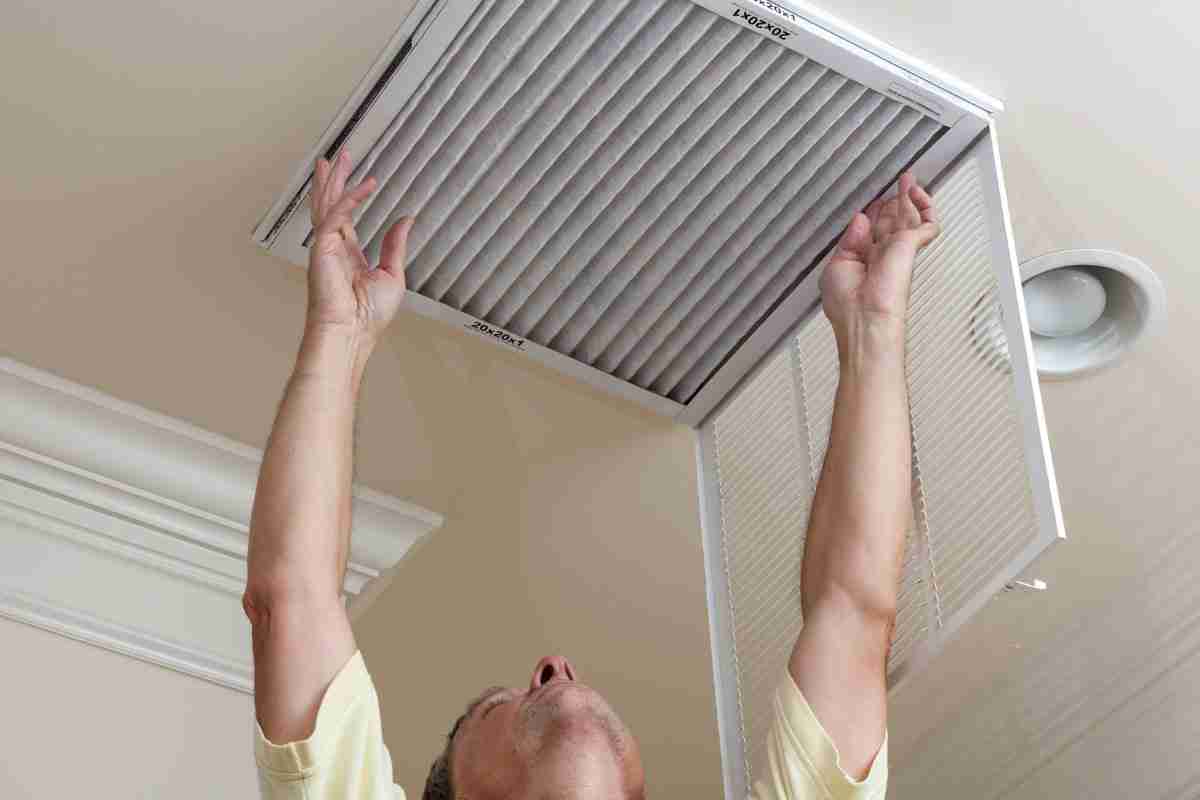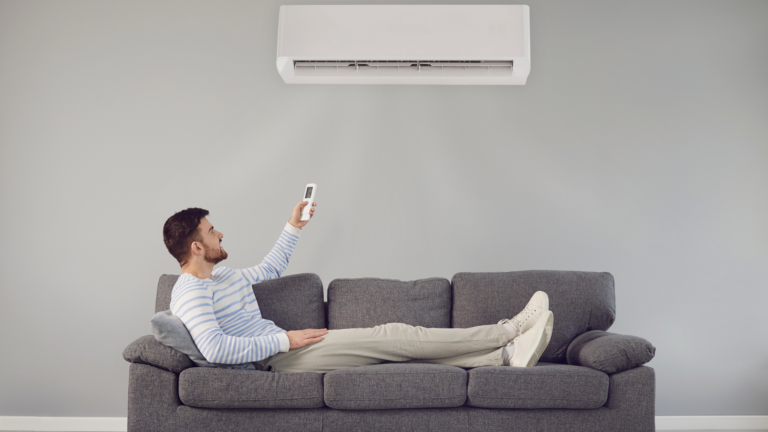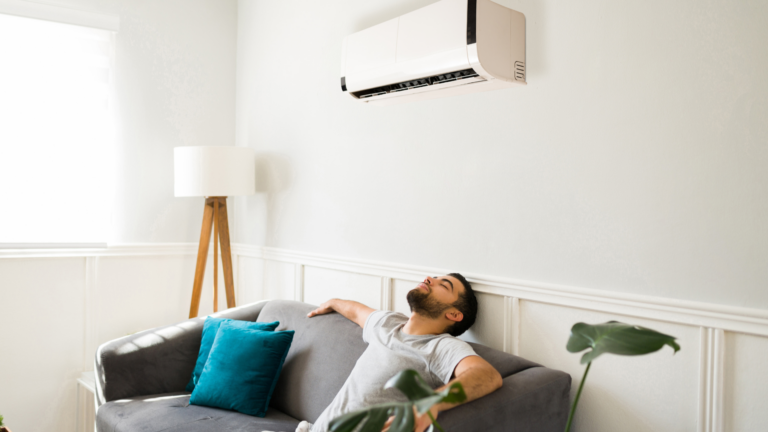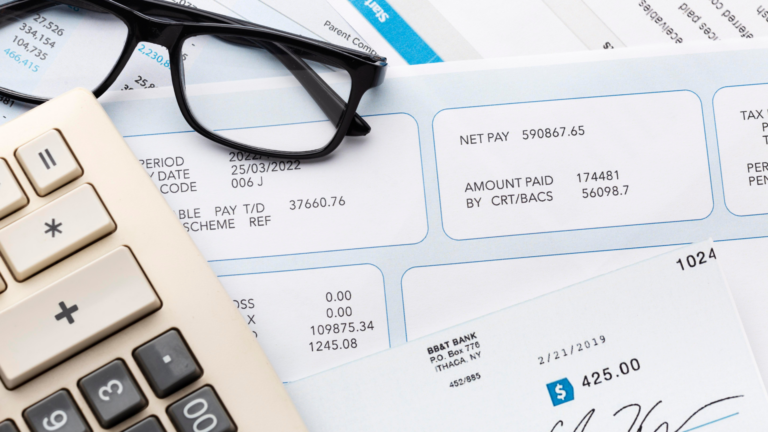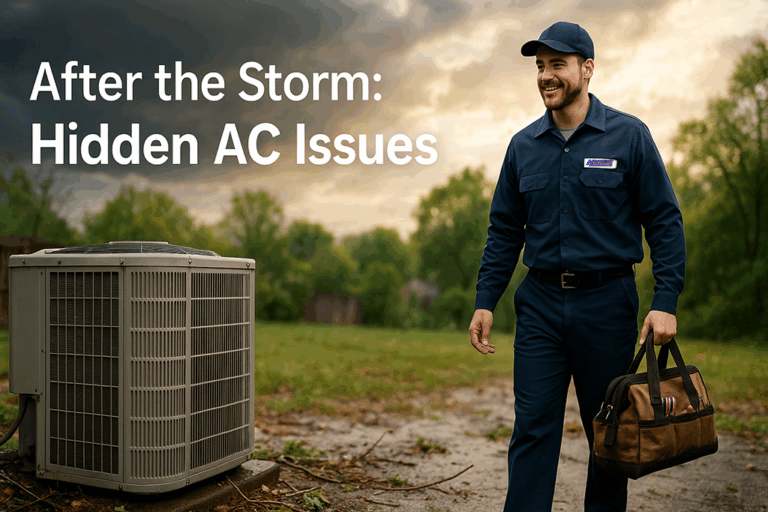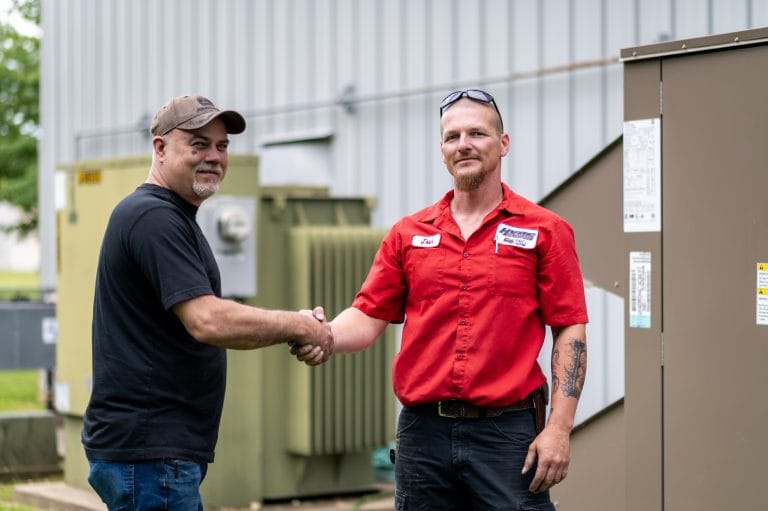4 Reasons to Change Your Air Filters Regularly
Changing air filters is not usually top-of-mind for most homeowners. In fact, this “invisible” chore often gets forgotten when there are more obvious things to take care of, like mowing the yard, cleaning the kitchen, or doing the laundry.
But regularly replacing your home’s air filters is actually one of the best things you can do for the life of your home. Your home’s air filters are an invisible shield protecting your home and your HVAC unit. Keep reading to discover why you should regularly replace your home’s air filters, how often you should replace them, and what type of filter is best for you.
Why should I replace my home’s air filters?
It may feel like an unnecessary task and one that’s easily forgotten, but replacing the air filters in your home is essential for several reasons.
- Improves the Home’s Air Quality. Air filter fibers trap pollen, pollutants, and dust and keeps them from circulating in the home. If the air filter is dirty and clogged, it can’t trap those particles, which leaves them to wander freely throughout your house. Replacing air filters routinely improves seasonal allergy struggles by keeping pollen trapped in the filter instead of in your lungs.
- Helps Keep a Cleaner Home. An air filter quietly works in the background, helping to keep dust out of your lungs and off your furniture and floors. An air filter doing its job means you’ll dust less frequently than with a clogged filter. You’ll know it’s time to replace your home’s filter when you see more dust than usual.
- Gives You Better Temperature Control. Replacing the home’s air filters gives you the ability to maintain a comfortable temperature throughout your home more consistently. And you’ll reduce trips to the thermostat to switch the temperature throughout the day.
- Extends the Life of Your HVAC System. By replacing air filters when they’re dirty, you reduce the load on your HVAC system. If your HVAC system compensates by working harder, your AC can freeze up, which potentially damages your unit. Which leads to…
- Saves Money. Air filters are an inexpensive way to help you reduce costs in your home. Replacing the filters when they’re dirty helps make your home more energy efficient, which saves money on your utility bills. Clogged air filters make your HVAC system work harder to push air through the home. This reduces the system’s efficiency and costs you more money in heating and cooling bills. And if your HVAC system works efficiently, you extend the life of your HVAC unit and will reduce the need for costly repairs or even an untimely replacement. And most Americans don’t have the funds saved to replace an entire HVAC system.
How often should I replace my home’s air filters?
The general rule of thumb is to replace pleated air filters every three months. But most of us live in places where a 90-day schedule isn’t often enough to maintain a healthy home environment. Most HVAC experts will tell you that you’ll need to replace your home air filters more frequently (like every 20 to 30 days) if you…
- Have dogs or cats living in the house
- Have more than one person living in the home
- Live in an urban area with higher concentrations of pollution or smog
- Live in a rural area or desert region where there’s more dust
- Live near construction (building new homes, road repair, etc., bring dust and debris into your home)
- Suffer from seasonal allergies, asthma, or other respiratory issues
So, how will you know when it’s time to replace your home’s air filters? A good guideline is to set a reminder to check your filters every month and replace them when they’re dirty.
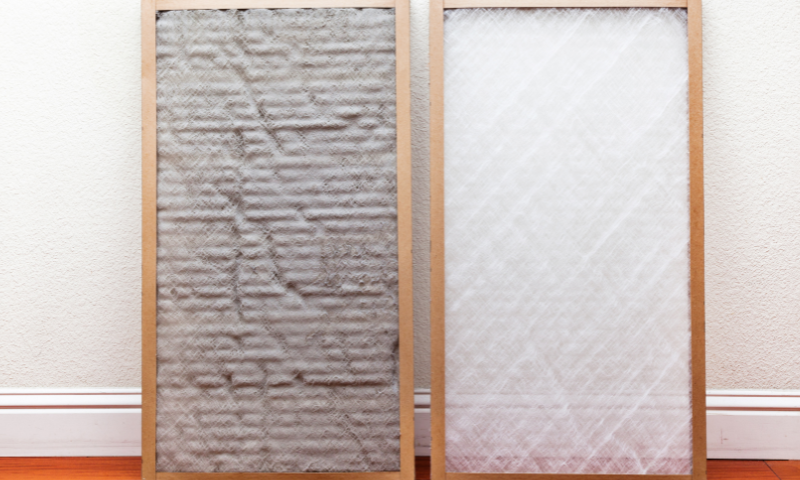
It’s easy to spot the difference between a clean air filter and one ready to be replaced.
How do I know which filter is best for me?
With the technology available in the heating and cooling industry, you have many options to consider when choosing the right filter for your home. But there are a few things to keep in mind as you search for the right air filter for your needs.
MERV rating
The MERV (Minimum Efficiency Reporting Value) rating tells you how efficient that filter is at removing pollutants of different sizes. The higher the number, the smaller the particles the filter will remove. Plan to replace lower MERV-rated filters more frequently than you would a higher-rated air filter.
Filter types
The MERV rating isn’t the only thing you need to consider when choosing the best filter for your home. You also need to consider the type of filter suited for your needs.
HEPA filters
HEPA filters are designed to capture allergens and tiny particles. HEPA filters always have a high MERV rating. While they can be very expensive and will clog more frequently, they are ideal if you suffer from allergies or live in an area with high pollution levels.
Washable filters
Washable filters are more environmentally friendly, as they are reusable and may cost less over time. These filters will have a lower MERV rating, and you’ll have to clean them regularly, which may be a downside for some. These are great if you’re looking for an eco-conscious option, want to save money, or don’t need a higher level of filtration.
Smart filters
Smart filters are newer to the market and leverage technology. These filters have a built-in sensor to monitor filter status, will send you an alert when it’s time to change the filter, and remind you of the type and size you need — no guesswork needed here! Smart filters are usually associated with an app unique to the brand and may also connect to Amazon Alexa or Google Assistant. Smart filters tend to be more expensive but are great for homeowners who are tech savvy or forget to replace home air filters regularly.
HVAC Master Can Help You Maintain Your HVAC System Year Round
Choosing the right air filters for your home and remembering to regularly replace them goes a long way to extending the life of your HVAC system. If you have questions about which type of filter is best for your situation, HVAC Master can help you determine the most cost-efficient solution for your home. And the team can help you save even more money with a programmable thermostat or through routine maintenance of your heating and cooling system.

